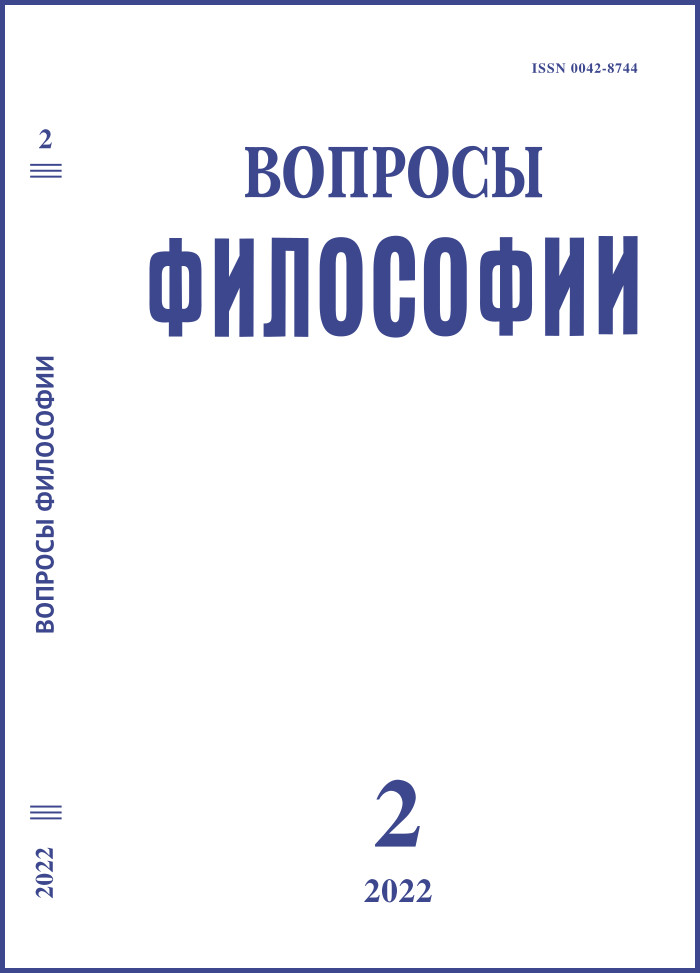Jewish Philosopher from Lithuanian Forests: On Solomon Maimon and His “Autobiography”
DOI:
https://doi.org/10.21146/0042-8744-2022-2-135-145Keywords:
Salomon Maimon, Immanuel Kant, Maimonides, German idealism, Jewish philosophy, Enlightenment, Kabbalah.Abstract
Solomon Maimon (1753–1800), one of the most significant Jewish philosophers of modern times, in his writings tried to critically approach the tradition of Jewish thought and compare its teachings with the views of European philosophers. In recent decades, he and his views have attracted close attention of historians of philosophy. Recently, seven volumes of his works were published in Russia, translated from German and Hebrew. One of his most famous books is his Lebensgeschichte (Autobiography), an autobiography written by him in the 1790s and revealing both the stages of his life path and spiritual development, as well as his understanding of various problems of philosophy, religion, ethics and mysticism. This book has enjoyed a reputation as a classic in the genre of “intellectual biography” for two centuries. The article discusses the main features of this book, as well as its perception in the 19th – early 20th centuries. The stereotypical image of Maimon as a freethinker Jew, a fighter against religious superstitions and social inequality, almost overshadowed his significance as an original philosopher, whose views were appreciated by I. Kant and J.G. Fichte. This attitude towards Maimon was fully reflected in the translations of his Autobiography. Our article pays special attention to the Russian translations of this book. We are publishing for the first time documents related to an attempt to publish in the 1930s a complete commented translation of Maimon’s book. Famous Soviet philosophers and translators participated in the preparation of this translation (Boris G. Stolpner, Isaak M. Alter, and others), but the book was never published for political reasons.
Published
Versions
- 2025-02-06 (2)
- 2022-02-28 (1)

